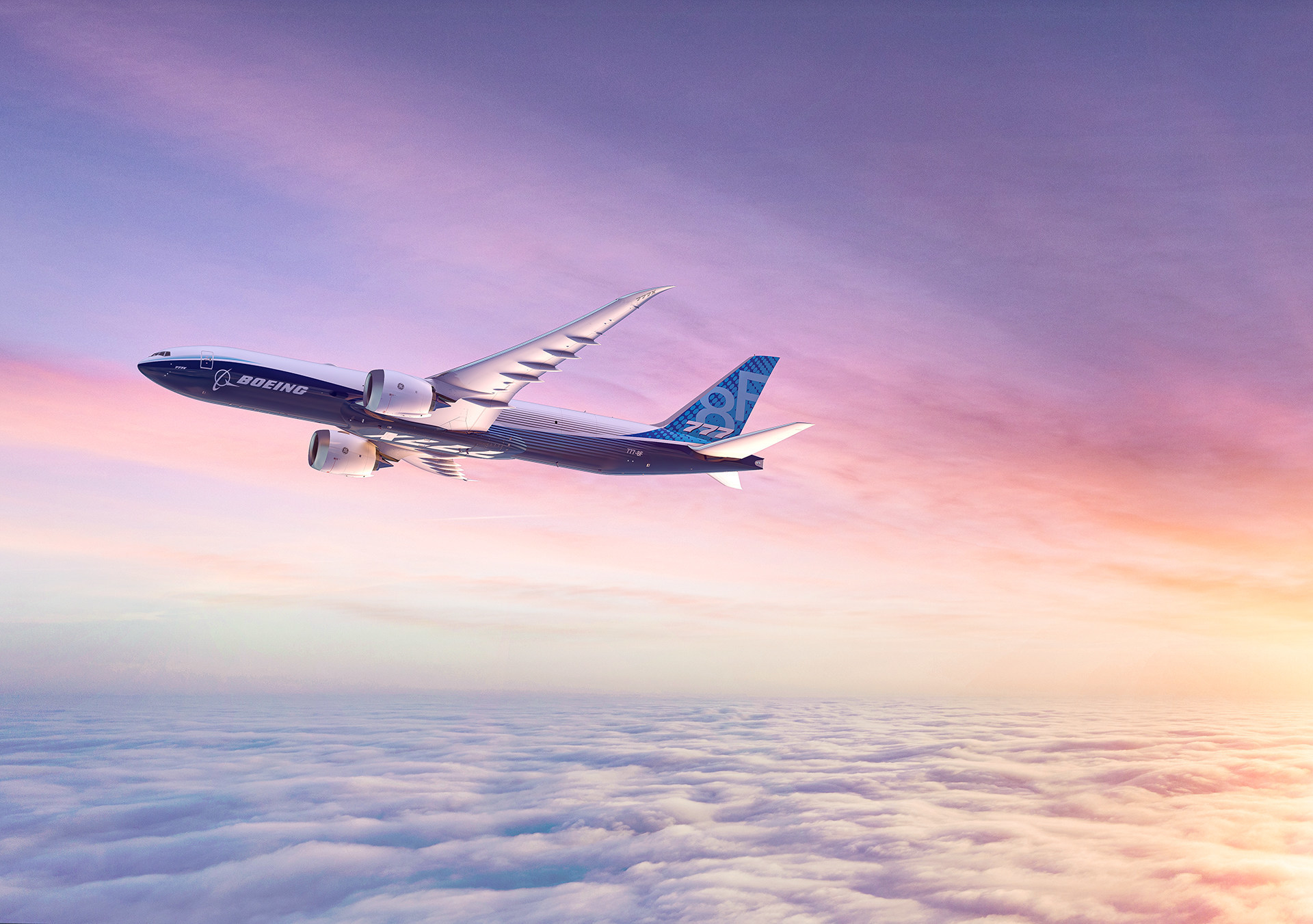Freighter fleet to grow by 80%, says Boeing
18 / 07 / 2022

Boeing 777-8 freighter. Copyright: Boeing
Over the next 20 years the global freighter fleet will grow by 80%, with conversions accounting for two third of deliveries, predicts Boeing.
Carriers will need 2,800 additional freighters overall, said the airframer in its Commercial Market Outlook (CMO) for 2022-2041.
“Over the next 20 years, the freighter fleet will grow from pre-pandemic levels by 80%, which represents 3% average annual fleet growth,” said Boeing.
“We forecast approximately 2,800 production-plus-conversion deliveries, with approximately half replacing retiring airplanes, and the remainder expanding the fleet to meet projected traffic growth.
“Roughly two thirds of deliveries will be freighter conversions from passenger airplanes, about 70% of which will be standard-body passenger aircraft.”
The expected 2,800 freighters includes 940 new widebody models in addition to converted narrowbody and widebody freighters over the forecast period, said Boeing.
In the standard body segment, the fleet is projected to grow by 90% over 2021 levels, with a projected 1,300 conversions.
In comparison, Airbus’ 2022 Global Market Forecast for the 2022-2041 period expects that the world freighter fleet in service will reach 3,070 aircraft by 2041, with nearly 70% of the current fleet anticipated to be replaced.
The Asia Pacific freighter fleet is forecast to grow larger than any other region and is expected to “become roughly the same size as the North American fleet by the end of the forecast period,” said Boeing.
In comparison, the North American fleet is projected to grow by one third. However, Boeing added the North American fleet will “need roughly as many deliveries as Asia-Pacific to efficiently and sustainably replace the existing fleet”.
The 2019 world freighter fleet consisted of 2,010 jet airplanes. By the end of 2021, the fleet had grown to 2,250 freighters. Additionally, freighter utilisation has been operating at approximately 125% of normal levels.
Overall air-cargo capacity has rebounded to 2019 levels with dedicated freighters hauling roughly two thirds of all air cargo, explained Boeing.
For the period 2022–2041, Boeing forecasts that air cargo traffic, in revenue tonne kilometers, or RTKs, will grow at 4.1% annually, an increase from last year’s forecast of 4%.
Development of global supply chains, express and e-commerce will drive continued demand for freighters. Ongoing oceanfreight disruption is also increasing demand.
Supply chain diversification is likely to increase air cargo demand because: “The pandemic has highlighted the value of air cargo’s speed and reliability as a tool to reduce supply chain risk”; and “Supply chains with more nodes in the system can profit from the flexibility of air cargo and point-to-point service.”
Air Cargo News‘ sister title FlightGlobal has also reported that Boeing plans to open a second surge line for 737-800 freighter conversions at its facility near London Gatwick airport. Conversion work on the new line will start in November.
Sustained freighter demand expected over next 20 years, says Airbus














